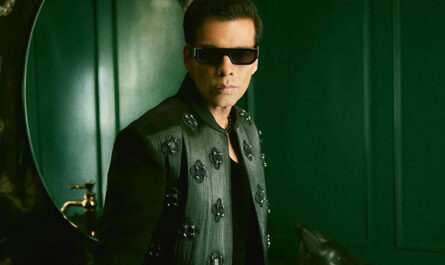In an era where social media has become the primary stage for both adoration and criticism, Bollywood star Urvashi Rautela has once again captured attention by addressing a wave of negative commentary with unmatched confidence. Recently, the actress found herself under the spotlight for reasons far removed from her professional endeavors. Instead of shying away from criticism, she chose to confront it head on, offering a response that not only silenced the naysayers but also sent a powerful message about self-respect and determination.
The incident unfolded when Urvashi, along with fellow actress Nora Fatehi, became the target of relentless trolling online. The critics, who often hide behind anonymous profiles, had launched a barrage of disparaging remarks, questioning not only their appearances but also their choices and achievements. While such comments are not uncommon in today’s hyper-connected digital landscape, what made this episode remarkable was the tone and substance of Urvashi’s reply—a retort that exuded strength, authenticity, and an unwavering commitment to herself.
A Star’s Journey Through the Digital Minefield
Urvashi Rautela’s rise in Bollywood has been marked by notable roles, striking performances, and a magnetic presence that draws both fans and critics alike. Like many celebrities, she has not been immune to the pitfalls of digital scrutiny. Social media, while offering an unparalleled platform for connection and promotion, has also become a breeding ground for toxic behavior and unsolicited opinions. The trolls who criticized Urvashi and Nora Fatehi represent a larger trend in which online spaces become hostile territories where even the most talented individuals are not spared.
For Urvashi, every public appearance and social media post carries the risk of sparking a negative reaction. However, her latest response is a testament to her growth and her ability to channel criticism into a source of strength. By addressing her detractors directly, she has redefined the narrative, refusing to allow baseless comments to diminish her self-worth. Instead of succumbing to the pressure of external negativity, she turned it into an opportunity to reassert her identity and to remind the world that her confidence cannot be shaken by fleeting opinions.
The Moment of Retaliation: A Closer Look at the Reply
The turning point came when Urvashi decided that enough was enough. Rather than engaging in a prolonged back-and-forth or altering her behavior to appease the critics, she issued a clear, concise statement that resonated with thousands. Her reply, which has since been widely circulated on social media, carries an undercurrent of defiance and empowerment. In her message, she dismissed the unwarranted criticism by affirming, in no uncertain terms, that she is not someone who is easily perturbed by the negative voices of others.
Her words were chosen with care, reflecting both the pain of being misjudged and the resolve to stand tall despite it all. By articulating her feelings with such precision, Urvashi sent out a call for respect and a reminder that every individual—regardless of their public stature—deserves to be treated with dignity. The response wasn’t merely a reaction to personal attacks; it was a broader declaration about the right to live authentically without the constant pressure of conforming to societal expectations.
Nora Fatehi’s Parallel Experience and the Shared Struggle
While much of the focus has been on Urvashi’s reaction, it is important to note that Nora Fatehi, another prominent figure in the industry, has also faced a similar barrage of negativity. The two stars, both celebrated for their distinct talents and styles, have become unwitting representatives of the larger issue of online harassment. Nora’s experiences, much like Urvashi’s, highlight the vulnerability that comes with fame in today’s digital ecosystem.
The criticism directed at both actresses extends beyond personal attacks; it reflects a cultural phenomenon where women in the public eye are often scrutinized far more harshly than their male counterparts. The relentless focus on their appearances, choices, and even the simplest aspects of their personalities underscores the double standards prevalent in the entertainment industry. In light of this, Urvashi’s forthright response becomes even more significant. It is not just an individual act of defiance but a powerful stance against a system that perpetuates misogyny and trivializes the accomplishments of women.
The Role of Social Media in Shaping Celebrity Narratives
Social media platforms have transformed how audiences interact with celebrities. They have evolved into arenas where public figures must constantly navigate the dual-edged sword of connectivity and criticism. On one hand, these platforms allow stars to engage directly with their fans and to build communities of support; on the other, they expose them to an onslaught of baseless and often cruel commentary. The trolling faced by Urvashi and Nora is symptomatic of a larger challenge faced by many celebrities, where the lines between public admiration and invasive scrutiny blur dangerously.
Critics argue that social media is partly to blame for fostering an environment where anonymity emboldens people to say things they would never utter in person. The online disinhibition effect—the tendency for individuals to behave more aggressively online—plays a significant role in the propagation of negativity. Yet, despite these challenges, many celebrities, including Urvashi Rautela, continue to use these platforms not only to promote their work but also to express their true selves. In doing so, they invite a more honest conversation about the realities of fame, personal identity, and the responsibilities that come with a public platform.
Turning the Tables: Empowerment in the Face of Adversity
Urvashi’s response is a case study in how to reclaim agency in the midst of public disparagement. Instead of letting the negativity define her narrative, she chose to reframe it, turning criticism into a catalyst for self-affirmation. Her message underscored an important truth: that the opinions of faceless internet trolls hold no weight against the conviction of someone who knows their worth.
In a digital world where a few hurtful comments can sometimes trigger a cascade of self-doubt, Urvashi’s statement serves as an important reminder that personal integrity is far more significant than any number of negative reactions. Her words remind us that while the internet can be a hostile place, it also offers the opportunity to rise above the pettiness and to chart a course that is guided by self-respect and authenticity.
Her reply also reflects a broader trend among celebrities who are increasingly vocal about mental health and self-empowerment. By openly addressing the challenges of online criticism, Urvashi and her contemporaries contribute to a growing discourse on how to cope with the darker sides of digital fame. Their candid discussions help to destigmatize the experience of being targeted online and encourage others to stand up for themselves in the face of adversity.
Breaking Stereotypes and Redefining Public Persona
The impact of Urvashi’s reply extends beyond the immediate context of online trolling. It challenges the prevailing stereotypes about female celebrities in Bollywood and beyond. Historically, women in the entertainment industry have often been forced to conform to narrow definitions of beauty and behavior. The relentless pressure to meet these standards not only undermines their professional achievements but also affects their personal well-being.
By rejecting the narrative pushed by her detractors, Urvashi is actively participating in the redefinition of what it means to be a modern, confident woman in the public eye. Her refusal to be cowed by baseless criticisms is an assertion of individuality that resonates with many who struggle under the weight of societal expectations. This act of defiance, delivered through a few potent lines, speaks volumes about the strength of character required to succeed in a domain where judgment is swift and often merciless.
Moreover, her reply serves as an educational moment for fans and critics alike. It reminds the audience that behind every glamorous photo or polished public appearance lies a human being with vulnerabilities and the courage to overcome them. By embracing her flaws and using them as a springboard for empowerment, Urvashi sets an example for aspiring artists and everyday individuals who face similar battles with self-doubt and criticism.
The Broader Implications for Bollywood and Digital Culture
The episode involving Urvashi Rautela and Nora Fatehi is reflective of a broader shift in how celebrities interact with the digital world. Bollywood, a powerhouse of glamour and creativity, has long been a magnet for both adulation and scorn. In this landscape, public figures are often forced to contend with narratives that are shaped not only by traditional media but also by an ever-evolving online discourse.
The virality of Urvashi’s response underscores the power of social media in amplifying voices that challenge the status quo. It has ignited discussions about the need for more respectful and constructive dialogue online, particularly in spaces where women are disproportionately targeted. This conversation is essential, as it highlights the responsibility of both public figures and their followers to foster an environment where differences of opinion do not translate into personal attacks.
Furthermore, the episode provides an opportunity to reflect on the future of celebrity-fan interactions. As more stars choose to address criticisms directly, the nature of public discourse may gradually evolve towards one that values genuine engagement over superficial popularity contests. The courage displayed by Urvashi could very well inspire a new wave of authenticity in Bollywood, encouraging both established and emerging talents to prioritize their mental and emotional well-being over the fleeting satisfaction of online validation.
Resilience as the New Norm in the Face of Digital Adversity
The digital era has redefined many aspects of our lives, not least the way we communicate and perceive one another. In this context, resilience is emerging as a crucial trait for anyone in the public eye. Urvashi Rautela’s recent response is emblematic of a broader movement where resilience and authenticity are celebrated as antidotes to the pervasive negativity of the online world.
Her stance reinforces the idea that self-worth is not determined by the number of likes or the volume of approval, but by an unwavering commitment to one’s true self. This message is particularly relevant in an age where the constant barrage of online opinions can often lead to feelings of inadequacy and isolation. By firmly rejecting the influence of such negativity, Urvashi has not only reclaimed her narrative but has also empowered countless individuals to do the same.
The lesson here is clear: while the internet can be a harsh and unforgiving space, it also offers the tools to transform adversity into strength. Urvashi’s response serves as a rallying cry for those who feel overwhelmed by the tides of public opinion, urging them to stand tall and embrace the unique qualities that define them. This message of resilience is one that resonates far beyond the confines of Bollywood, offering hope and inspiration to anyone facing unwarranted criticism in the digital age.
A New Chapter for Celebrity Discourse in Bollywood
The recent events surrounding Urvashi Rautela and Nora Fatehi mark a significant moment in the ongoing evolution of celebrity culture in Bollywood. Their experiences shed light on the challenges of maintaining one’s identity amid the ever-present pressures of public scrutiny. By addressing the trolls directly, Urvashi has not only defended her personal honor but has also paved the way for a more honest and respectful form of engagement between celebrities and their audience.
This new chapter is characterized by a willingness to confront uncomfortable truths about fame and the pitfalls of digital life. The conversation that has emerged in the aftermath of her response is one that calls for empathy, understanding, and a collective commitment to rejecting the toxic behaviors that have too often defined online interactions. It is a reminder that the real measure of success lies in one’s ability to remain true to oneself, regardless of external pressures.
As the discussion unfolds, it becomes evident that this incident is more than just a fleeting moment in the digital spotlight. It represents a turning point—a call for change in how society perceives and interacts with public figures. The courage shown by Urvashi Rautela is a beacon for those who have long struggled with the burden of expectation, proving that it is possible to rise above the negativity and forge one’s own path with dignity and grace.
Looking Forward: The Impact of a Single Statement
In the grand tapestry of celebrity discourse, individual moments of defiance can have ripple effects that extend far beyond their immediate context. Urvashi Rautela’s firm and unapologetic reply to online trolls has sparked a conversation that is likely to influence how future incidents are handled in the public domain. It highlights the power of a single, well-articulated statement to transform criticism into a catalyst for positive change.
Her response is not only an assertion of her personal strength but also a statement of solidarity with all those who have been unfairly targeted in the digital arena. It reinforces the idea that while the internet may amplify negativity, it also holds the potential to spread messages of empowerment and resilience. In choosing to stand up for herself and her peers, Urvashi has demonstrated that bravery comes in many forms, and that sometimes the most effective way to combat hate is simply to be unapologetically true to who you are.
As fans and critics alike continue to dissect the nuances of her reply, one thing remains certain: the conversation about online harassment and celebrity accountability is far from over. The courage displayed by Urvashi and Nora serves as a reminder that while the challenges of the digital age are formidable, they are not insurmountable. With each act of defiance, there is an opportunity to reshape the narrative, making room for a future where respect and authenticity are valued above all else.
Conclusion: A Testament to Strength and Self-Belief
In conclusion, the recent incident involving Urvashi Rautela’s powerful reply to online trolls is much more than a momentary public relations maneuver—it is a testament to the strength of character and self-belief in the face of relentless negativity. By choosing to address the criticism directly and assertively, Urvashi has not only reclaimed her personal narrative but also set an example for countless individuals who face similar challenges in their own lives.
Her response, filled with candor and determination, encapsulates the essence of what it means to stand up for oneself in today’s digital world. It challenges the notion that a celebrity must be passive in the face of online vitriol and instead celebrates the idea that resilience and authenticity can triumph over even the harshest of criticisms. This episode, while rooted in the specifics of Bollywood and celebrity culture, speaks to universal themes of self-respect, empowerment, and the courage to be unapologetically oneself.
As society continues to grapple with the complexities of digital communication and the often-unforgiving nature of social media, Urvashi Rautela’s words serve as a beacon of hope and a reminder that true strength lies in the ability to remain steadfast in one’s beliefs. Her message is clear: no amount of online negativity can diminish the light of self-worth, and every individual deserves to be treated with respect and empathy. In celebrating her fortitude, we also celebrate the power of resilience—a quality that, in the end, defines not just celebrities, but all of us.
This bold declaration of independence and self-assurance is a turning point in the ongoing discourse about celebrity, media, and digital culture. It challenges us to reexamine our own interactions online and to foster an environment where respect is not a rarity, but a given. Urvashi’s inspiring retort is a reminder that while the digital world can be fraught with challenges, it also holds the potential for transformative change. In her refusal to be cowed by negativity, she has ignited a spark—a spark that encourages us all to stand up, speak out, and celebrate our unique identities.
In the end, the saga of Urvashi Rautela’s defiant reply is a powerful narrative of courage, authenticity, and the enduring human spirit. It reminds us that while critics may come and go, the strength to rise above them remains an intrinsic part of who we are. As we move forward in an increasingly interconnected world, her example offers valuable lessons on how to navigate the turbulent waters of public opinion, proving that true beauty and success are defined not by the voices of detractors, but by the resilience and determination within.



